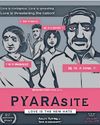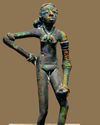
On September 20, 1924, Sir John MarOn shall, director-general of the Archaeological Survey of India, made a historic announcement in the Illustrated London News: "First light on a long-forgotten civilisation: New discoveries of an unknown prehistoric past in India." What his team stumbled upon was not just a localised culture, but a civilisation that radically pushed back the known history of India.
Before the discovery of the Indus Valley civilisation, the origins of any civilised society in India were always traced back to the Vedic age. The ruins of Harappa and Mohenjo-daro altered this perspective. The discovery pushed back the origins of ancient Indian civilisation far beyond the Vedic period (1500 BCE).
The significance of Marshall's announcement can be fully appreciated when we note that Alexander Cunningham, the first director general of the ASI, had missed the opportunity to investigate the first Harappan seal, discovered by his associate Major Clarke. Cunningham had erroneously concluded in 1872 that the seal was "foreign to India". In 1902, viceroy Lord Curzon appointed Marshall as the new head of the ASI. Curzon preferred the 26-year-old archaeologist over Vincent Smith, an Irish Indologist and historian, who had suggested in his book, The Early History of India, that "the materials available for the study of early Dravidian institutions are not yet sufficiently explored, and the historian's attention necessarily must be directed chiefly to the Indo-Aryan institutions of the north, which are much more fully recorded than those of the south". Had it not been for Marshall, the historic announcement of 1924 might never have been made.
Denne historien er fra December 29, 2024-utgaven av THE WEEK India.
Start din 7-dagers gratis prøveperiode på Magzter GOLD for å få tilgang til tusenvis av utvalgte premiumhistorier og 9000+ magasiner og aviser.
Allerede abonnent ? Logg på
Denne historien er fra December 29, 2024-utgaven av THE WEEK India.
Start din 7-dagers gratis prøveperiode på Magzter GOLD for å få tilgang til tusenvis av utvalgte premiumhistorier og 9000+ magasiner og aviser.
Allerede abonnent? Logg på

POSTERS OF PROTEST
Appupen is a cartoonist who has published a few graphic novels, the latest being Dream Machine, about how AI can be a great 1 tool for an! authoritarian regime.

CLASH OF THE CIVILISATION
Even as the discovery of the Indus Valley Civilisation completes a century, some key aspects of this ancient culture remain mysterious, including its script. While the controversy over whether it was disrupted by an Aryan invasion may now be discredited, the debate over Indus ancestry and current links continues

A PROVEN PATHWAY TO PEACE
Low-cost, easy to implement, immediate results, and scientifically verified.

FOOTBALL GIVES THEM A KICK
For the children of Manipur and Mizoram, the great game is a way to a prosperous future

BATTLE FOR TOMORROW
Over the past decade, much has been said about India's potential as a leading global power.

THE TONGUE THAT TURNED
Why Greek survived while Latin and Sanskrit declined

USTAD ZAKIR HUSSAIN 1951-2024: HIS MUSIC WAS THERAPY TO THE WORLD
Flautist and Grammy co-winner Rakesh Chaurasia remembers the maestro

The magic of indigo
I really can't imagine why more of us don't throng Goa each December for the Serendipity Arts Festival alone. The festival, in its ninth year now, has the entire Panjim town celebrating.

NEW YEAR.NEW HOPE
EQUITY MARKETS HAVE TURNED VOLATILE OF LATE. WHAT TO EXPECT IN THE NEW YEAR

Seeking middle ground in Middle East
The collapse of assumptions is like the end of the world-or worldview. We assumed conwith the 20th century. But wars in Russia-Ukraine, Gaza, Yemen, Sudan, Somalia and Lebanon prove us wrong. Western defence officials now raise the nuclear threat level.